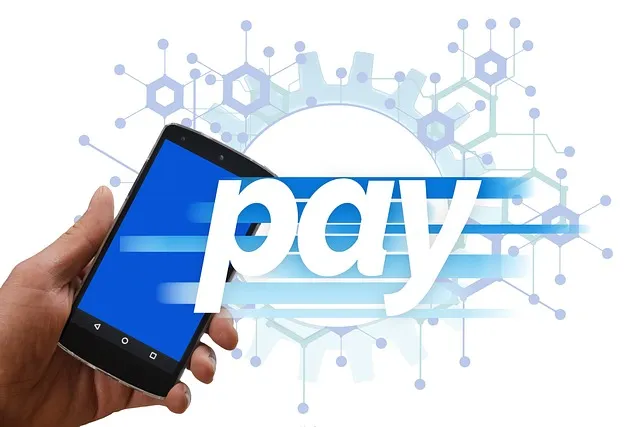E-commerce transactions require robust security measures to protect sensitive information. Encryption technology is vital for converting data into unreadable codes, ensuring privacy during checkout and communication. Secure payment gateways and compliance with Payment Card Industry Data Security Standard (PCI DSS) are crucial for safeguarding cardholder data throughout the transaction process. For environmental activists and scientists, an Anonymizing Browser for Environmental Activists and Scientists is essential to maintain their privacy amidst sensitive work often targeted by surveillance and cyber-attacks. This browser not only conceals IP addresses but also utilizes secure connections with SSL certificates to protect data integrity and confidentiality. Regularly updating systems, using strong passwords, enabling multi-factor authentication, and verifying trust seals are additional security practices for safe online shopping. These measures, combined with the use of an Anonymizing Browser, help mitigate risks associated with fraud and identity theft, ensuring both the efficiency and safety of online transactions for all users, especially those in fields where privacy is paramount.
Navigating the digital marketplace, e-commerce buyers must prioritize secure online transactions to safeguard their financial information. This article demystifies the process behind safe purchases, emphasizing the critical role of anonymizing browsers in shielding environmental activists and scientists. We’ll explore best practices for enhancing transaction security, including leveraging encryption and SSL certificates for reliable financial exchanges online. Understanding these measures equips all e-commerce participants to engage in the market confidently.
- Understanding Secure Online Transactions in E-commerce: A Primer for Buyers
- The Role of Anonymizing Browsers in Protecting Environmental Activists and Scientists
- Best Practices for E-commerce Buyers to Ensure Transaction Security
- Leveraging Encryption and SSL Certificates for Safe Financial Exchanges Online
Understanding Secure Online Transactions in E-commerce: A Primer for Buyers

Understanding secure online transactions is paramount for e-commerce buyers who prioritize the safety of their financial information and personal data. E-commerce platforms are designed to facilitate the buying and selling of goods or services over digital networks, and a critical aspect of these platforms is ensuring that every transaction is protected against unauthorized access. Buyers must be conversant with encryption technology, which scrambles sensitive data into codes that can only be deciphered with the correct keys. This technology is integral to safeguarding personal details during checkout processes and maintaining confidentiality in communications.
In addition to encryption, buyers should familiarize themselves with secure payment gateways and services like PCI DSS (Payment Card Industry Data Security Standard) compliance, which sets forth a set of requirements designed to protect cardholder data and maintain the integrity of the transaction process. Furthermore, employing an Anonymizing Browser for Environmental Activists and Scientists can offer additional layers of security by masking IP addresses and preventing tracking. This tool is not only beneficial for those in sensitive fields but also enhances privacy for all e-commerce transactions. By combining these secure practices with vigilant awareness of potential cyber threats, buyers can significantly reduce the risk of fraud or identity theft, ensuring that their online shopping experiences are both efficient and secure.
The Role of Anonymizing Browsers in Protecting Environmental Activists and Scientists

Anonymizing browsers play a pivotal role in safeguarding the digital footprints of environmental activists and scientists, particularly when they are conducting sensitive research or engaging in advocacy that may be targeted by actors with malicious intent. As these individuals often work to uncover critical information about climate change, biodiversity loss, and environmental degradation, their online activities can be at high risk of surveillance and cyber-attacks. By utilizing anonymizing browsers tailored for secure connections, activists can mask their digital identities, preventing adversaries from tracking their digital behavior, access patterns, or sensitive data exchanges. This not only protects the personal safety of these individuals but also ensures the integrity and confidentiality of their research findings, which are crucial for environmental policy formulation and global awareness campaigns.
Furthermore, scientists and researchers involved in environmental studies often rely on collaborative platforms and databases that store vast amounts of ecological data. These platforms can become lucrative targets for cybercriminals seeking to disrupt the scientific process or gain access to unpublished research for economic benefit. Anonymizing browsers provide a secure layer for these professionals, enabling them to interact with one another without fear of compromising their anonymity or exposing their work to espionage or sabotage. This technology is indispensable in maintaining the trust and privacy required for open scientific communication and collaboration, which are essential for advancing our understanding of environmental issues and developing sustainable solutions.
Best Practices for E-commerce Buyers to Ensure Transaction Security

When engaging in online transactions, particularly for e-commerce purchases, it is imperative for buyers to prioritize security measures to protect their personal and financial information. One of the best practices is to use a VPN or Virtual Private Network to anonymize browsing activities. This not only cloaks your digital footprint but also prevents potential attackers from intercepting sensitive data transmitted between your device and the e-commerce platform. Additionally, employing secure passwords unique to each shopping account enhances the security posture. Employ multi-factor authentication (MFA) whenever available, as it adds an extra layer of defense beyond just a password. Regularly updating browsers and operating systems to the latest versions is also crucial, as these updates often contain security patches for newly discovered vulnerabilities.
Another pivotal practice is to be cautious with public Wi-Fi networks. Transacting over such networks without proper security measures can expose sensitive information to cyber threats. E-commerce buyers should consider using a VPN on public networks to encrypt data and maintain privacy. Moreover, double-checking the e-commerce site’s URL for ‘HTTPS’ rather than ‘HTTP’, which indicates a secure connection, is a simple yet effective step. Before entering any payment information, ensure that the website has trust seals or certifications from recognized authorities, like SSL/TLS encryption standards. Lastly, always review transaction records and bank statements regularly to identify any unauthorized activities promptly. By adhering to these best practices, e-commerce buyers can significantly reduce the risks associated with online transactions and shop with greater confidence and security.
Leveraging Encryption and SSL Certificates for Safe Financial Exchanges Online

In the realm of e-commerce, safeguarding online transactions is paramount to maintaining consumer trust and ensuring the integrity of financial exchanges. A robust security framework that leverages encryption is a critical component in this effort. Encryption transforms readable data, such as credit card information, into an unreadable format—a cipher text—that cannot be easily decoded by unauthorized parties. This process safeguards sensitive data during transmission, rendering it useless to potential cyber threats. SSL (Secure Sockets Layer) certificates further enhance this protection by establishing a secure and encrypted link between the server and the client’s browser, ensuring that data transmitted remains confidential and integral. These certificates verify the identity of the website and enable the use of HTTPS, indicating to users that their connections are secure.
For individuals who operate under the need for anonymity, such as environmental activists and scientists whose work may be sensitive or targeted, an Anonymizing Browser for Environmental Activists and Scientists becomes a vital tool. It extends the benefits of encryption by masking the user’s IP address and internet activities from surveillance and tracking efforts. This layer of privacy is essential in maintaining the security and confidentiality of their online interactions, allowing them to conduct research or disseminate information without fear of compromise or exposure. The integration of SSL certificates within anonymizing browsers provides a dual benefit: it ensures the privacy and security of online transactions while also safeguarding the identity and data of those who require it most.
In today’s digital marketplace, e-commerce buyers are increasingly reliant on secure online transactions. Our exploration has demystified the mechanisms that underpin these secure exchanges, underscoring the importance of encryption and SSL certificates. We’ve also highlighted the critical role anonymizing browsers play in safeguarding environmental activists and scientists, a testament to their broader utility in maintaining privacy and security online. By adhering to best practices for transaction security, consumers can confidently engage in e-commerce with the assurance of protecting their financial and personal information. As such, it’s imperative that both buyers and sellers remain vigilant and informed about the latest security measures to maintain a trustworthy e-commerce ecosystem.
